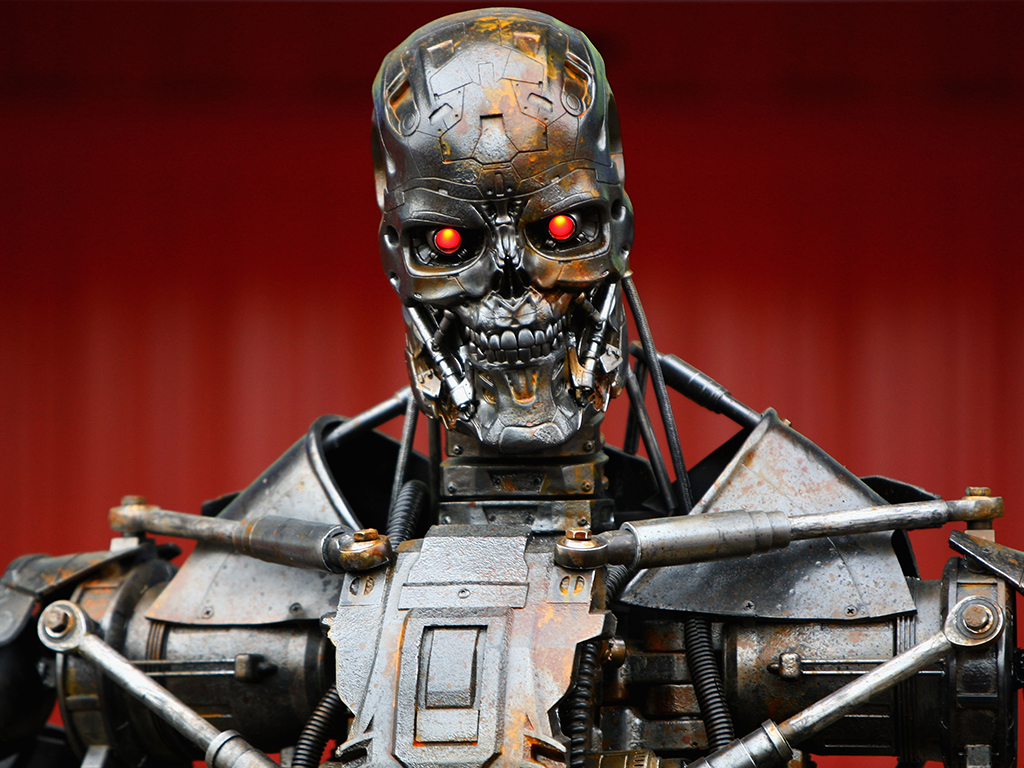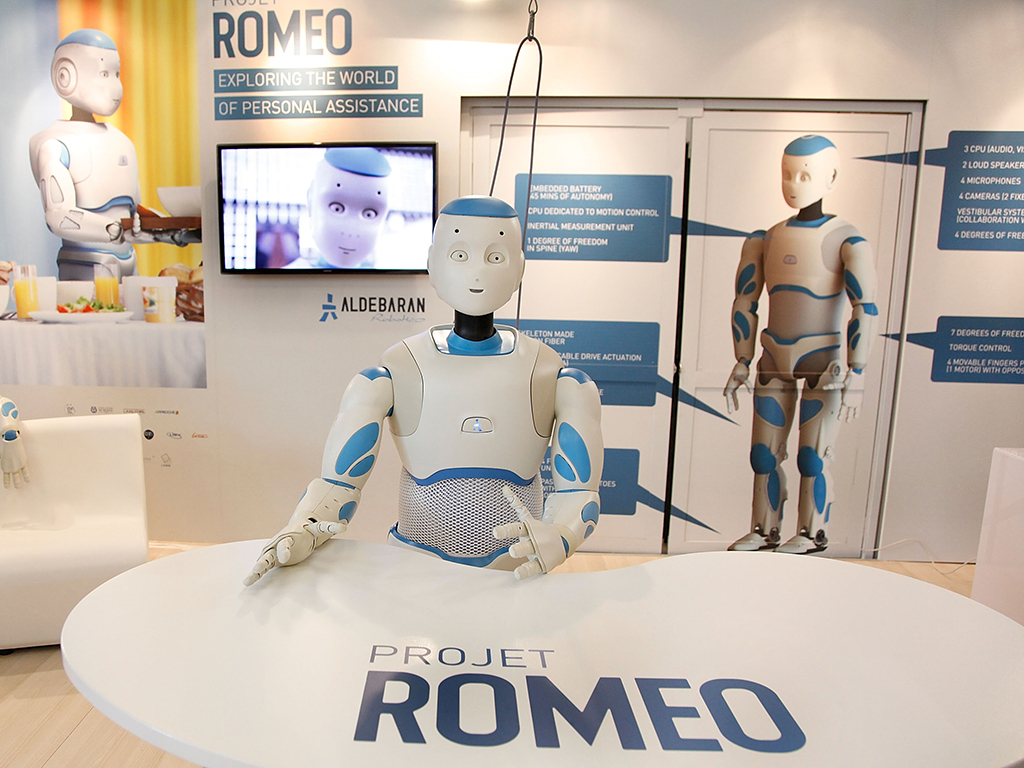Robbing robots want our jobs, but it’s not all bad
Automation now poses a threat to jobs beyond manufacturing. Are we set to see robots freeing humans from the burden of work?

Many are frightened that robots are rapidly taking over our jobs, but that's not necessarily a bad thing, says Tom Bailey. If there's anything we've learnt from past revolutions, it's that they create more work for humankind
Chefs may soon face the chop. Using robotic arms created by ShadowRobotics, the company Moley has created a robot that can cook and prepare meals. As Tech Crunch notes, “the robotic arms are programmed to precisely replicate recipes. It’s not totally automatic – you still have to lay the ingredients out in a specific way – but in a demo for the IBTimes it seems like the robot was an able and patient cook. It took 30 minutes to make a soup dish with no human intervention.” It is not inconceivable then, that chefs could be replaced by such a robot, with only a human needed to lay out the ingredients. The phasing out of valued skills – those of a chef in this case – is nothing new.
Whenever humans have replaced certain tasks with machines, new industries have
popped up
In the early 19th century a group of English textile workers took it upon themselves to smash up mechanised weaving-looms. These men’s livelihood had been jeopardised by the replacement of their skill by what is now called automation. What these workers – known as luddites – feared was their own impoverishment due to machines making their skills obsolete. Yet with the Industrial Revolution still in its infancy, the idea of machines replacing human labour wholesale was unthinkable.
Robotic lawyers
In the present, there is much speculation – both fearful and celebratory – about just this; the replacement of humans in the workplace with robotic machines. There exist a diverse number of jobs which have been, or are at threat to be, replaced by automation. The replacement of manufacturing jobs – due to the constant technological revolution that is capitalism – has long been the case. Now, a wide variety of jobs, both blue and white collar, are under threat.
In Philadelphia city authorities have instituted the use of BigBellies Solar rubbish bins to deal with public waste. These new street bins are connected to wifi and equipped with sensors. Once the sensors determine that the amount of rubbish within a bin is at capacity, an alert is sent out and a team of rubbish collectors come to empty the bin. This, in contrast to regular scheduled collection rounds, has cut the amount of workers needed to collect public waste.
A few years ago Forbes magazine began using algorithms called ‘Narrative Science’ to write business news stories. The same software is also used by Big Ten Network to write sports reports. Technological advances, notes the New Statesman, mean that “machines are now getting very good at scanning long documents and picking out salient bits of information, imitating a cognitive skill traditionally thought to be unique to humans.” The result of this has been speculation that even lawyers could be replaced by robots, according to The Atlantic. Those tasked with identifying potholes in the road also face automation, as they could soon be replaced by an app which detects cracks in the road users may encounter while driving, sending a signal to the relevant authorities.
The encroaching upon jobs by robots – both potential and actual – into areas traditionally thought immune to automation has led many to predict a phasing out of humans in much of the workforce. In 2013 McKinsey & Company claimed in a report that by 2025, robotic machines have the potential to replace 15 to 25 percent of jobs in the West. As Paul Krugman notes, “the report suggests that we’re going to be seeing a lot of ‘automation of knowledge work,’ with software doing things that used to require college graduates.
More optimistically at Wired magazine, Kevin Kelly predicts that “before the end of this century, 70 percent of today’s occupations will likewise be replaced by automation.” One 2014 report suggests that 40 percent of jobs in Britain are under threat of automation. Further to the left, the ideal of communism is attempting to be revived off of the back of automation, under the slogan “Fully Automated Luxury Communism.”

Recurring Predictions
All of this is rather familiar. In the 1960s many expected the same process to take place. A newspaper report from the Sunday Citizen in 1964 spoke of automation resulting in only twenty percent of the workforce being required to work, resulting in societies having to create new attitudes towards leisure. A group in America called The Labour Committee for Full Employment predicted in 1963, that by 1974, 98 out of every 100 American workers would be replaced by robots. Yet humans still toil.
Perhaps we are on the cusp of a new era, where humans are no longer beasts of burden – even if that burden is relatively un-tiresome, such as tapping a keyboard or pressing a button. Or the optimists and pessimists of automation may be getting ahead of themselves. Whenever humans have replaced certain tasks with machines, new industries have popped up, taking in those replaced by robots. Just preceding the Industrial Revolution, mechanised agricultural techniques meant that fewer workers were needed to till the land. Yet at the same time a new form of work was emerging: waged-labour in factories. The Industrial Revolution absorbed surplus labour that agricultural mechanisation created. As traditional industry in the West began its slow decline in the mid-twentieth century, a plethora of other industries sprang up. Increased prosperity and access to consumer goods resulted in the rise of associated industries such as advertising. Increasing homeownership led to the proliferation of banking and insurance companies, while technological advances – mostly revolving around the internet – have led to the rise of a host of jobs associated with the digital economy.














